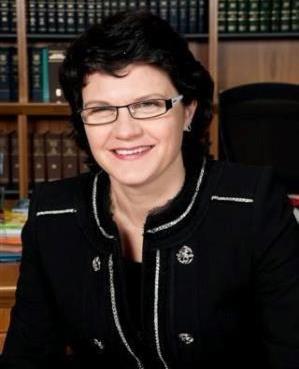
The Chief High Court Judge is anticipating another busy year for the court, with a number of long criminal trials in Wellington.
Nationwide there are 22 cases awaiting trial expected to take 20 days or more, Justice
Helen Winkelmann told
NZLawyer.
“These 19 percent of trials comprise 46 percent of estimated hearing time required.”
“Currently High Court-only matters (mainly murder/manslaughter) make up about 30 percent of the caseload, and protocol cases (mainly serious sexual offending and serious drug offending) make up about 70 percent of the work on hand.”
This week Justice Winkelmann released a report highlighting some of the key aspects of 2014; which was marked by several lengthy criminal trials, including the 20-week-long South Canterbury Finance fraud trial and two drugs trials in Auckland, of 12 and 18 weeks respectively.
“Despite a drop in the number of criminal cases on hand, the estimated days to hear those cases has remained reasonably steady for the last four years,” her report said.
A bubble in filings of civil cases attributable to the global financial crisis has receded, with time to trial trending downward, it said.
A pleasing trend for Justice Winkelmann was the increasing co-operation between counsel and a reduction in the number of case management events in the court, which became evident in a review of the changes to the discovery and case management rules that came into effect in 2012 and 2013.
“The increased co-operation between counsel has resulted in the narrowing of the extent of discovery, and in the reduction in the number of case management conferences,” she told
NZLawyer.
“This has flow on benefits for the client, because it reduces costs, and for the system, as it reduces the demand for judges to be involved in the early stages of a proceeding, and frees them up for substantive work.”
“This is certainly a trend I would like to see continue, and in particular I think there remains considerable scope for further work on reducing the scope of discovery, the cause of much of the cost of civil litigation. Related to this is the potential for counsel to narrow the scope of issues that go through to trial through early discussion."
Justice Winkelmann noted another trend she would like to see continue into 2015.
“I have followed with interest the conversation that has recently been sparked about how the profession can look to meet presently unmet legal need. I am aware of several initiatives being considered in this area and would like to encourage the profession to continue its work.”
Last year Justice Winkelmann met with practitioners in Tauranga, Hamilton and Dunedin, and this year she hopes to visit other provincial centres while continuing r
egular meetings with representatives in Auckland, Wellington and Christchurch.
With regards to provincial centres, Justice Winkelmann said the court has clarified its approach to admission ceremonies.
“The Court recognises the desirability of admitting candidates to the Bar in their local community. However admission ceremonies, like all business of the Court, depend on the availability of a judge.”
“Where a candidate wishes to be admitted in a small registry, the admission ceremony will be arranged when a judge is scheduled to sit there as part of normal circuit duties. Candidates should be aware however that if other proceedings set down for hearing on that day in that location do not proceed, the ceremony may be rescheduled to a later date and that this may occur at short notice.”
She expected her Annual High Court Review to be issued in the next month or so.

 The Chief High Court Judge is anticipating another busy year for the court, with a number of long criminal trials in Wellington.
The Chief High Court Judge is anticipating another busy year for the court, with a number of long criminal trials in Wellington.